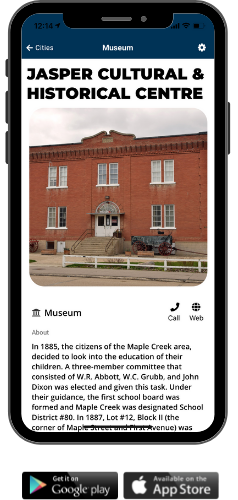The Old Lady Has New Underpants!
By Amber Gregg, Potato House Sustainable Community Society Program Coordinator
The land on which the Potato House stands is located in the territory of the T’exelc, Williams Lake First Nation, whose village site in the 1800s occupied downtown Williams Lake. In 1941, the Borkowski family built the house in Williams Lake, which at the time was a small village with only a few hundred residents. In the 1950s, the Borkowskis sold the house and land to Alcina and Manuel Quintela, who had just immigrated from Portugal. Together they turned the yard into a giant potato patch that became famous throughout Williams Lake and the area. The Potato-Man’s House, as it was known, was eventually purchased by the Potato House Sustainable Community Society; ever since, the site has been cared for and developed with sustainability, heritage and community in mind.
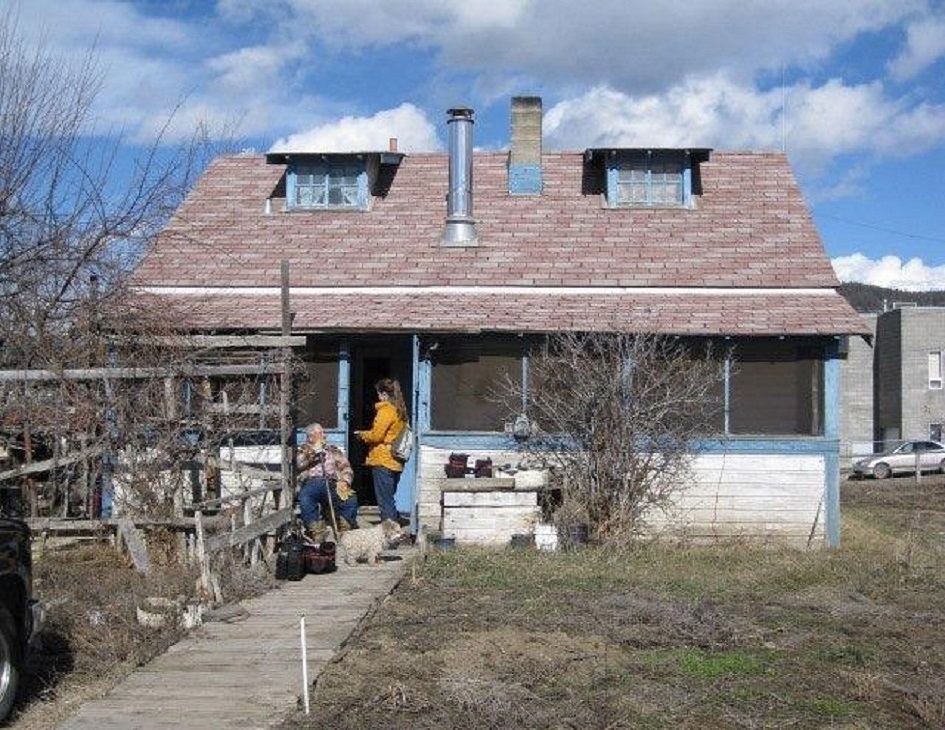
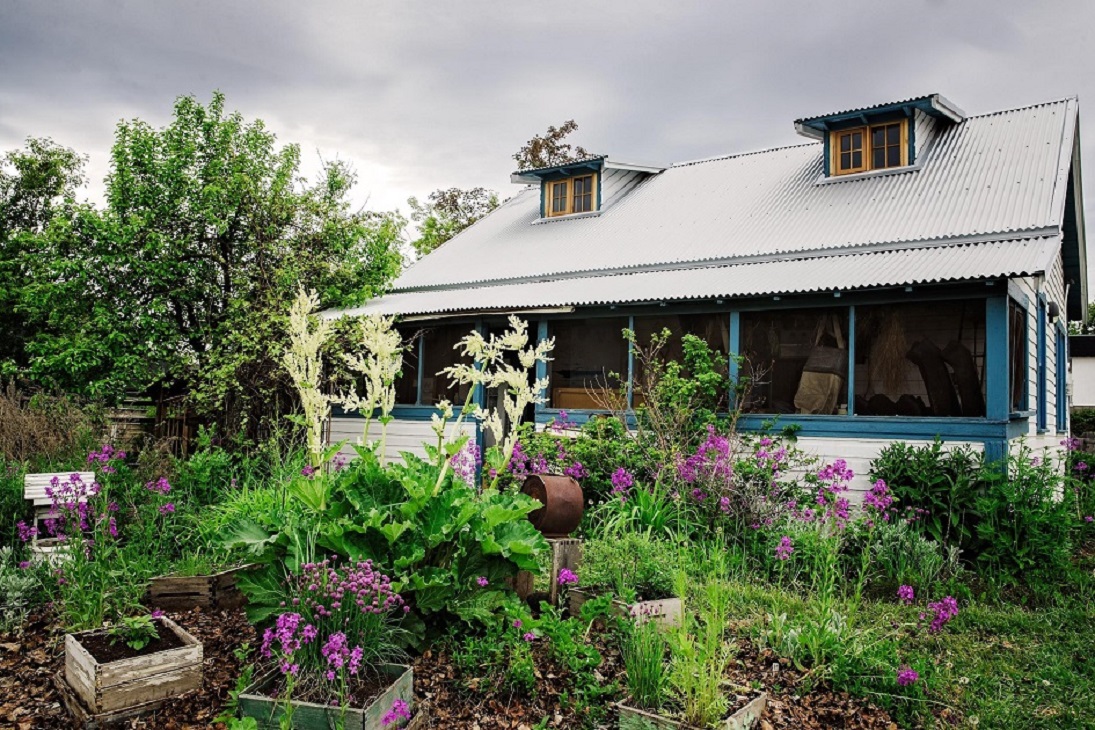
“The Potato-Man’s House” purchased in 2010 by the Potato House Sustainable Community Society prior to restoration work. Photo Credit: Potato House Sustainable Community Society.
Generous project funding has allowed the Society to restore the house and create a lush, welcoming green space for the community to enjoy. Photo Credit: Laureen Carruthers.
Over the years, the house has gone through various restoration projects to allow the organization to increase its capacity for tours and programs, while preserving the heritage character of the architecture and decor. Each project is planned with the organization’s heritage and sustainability values at the forefront. In 2020, Northern Development Initiative Trust and Heritage BC provided funding to transform the top floor of the house from a small, cluttered area to an airy, open meeting space. Linseed oil was used to preserve the floors, a feature wall was made with old wood from the house, and the space was completed with a gorgeous donated table and chairs.
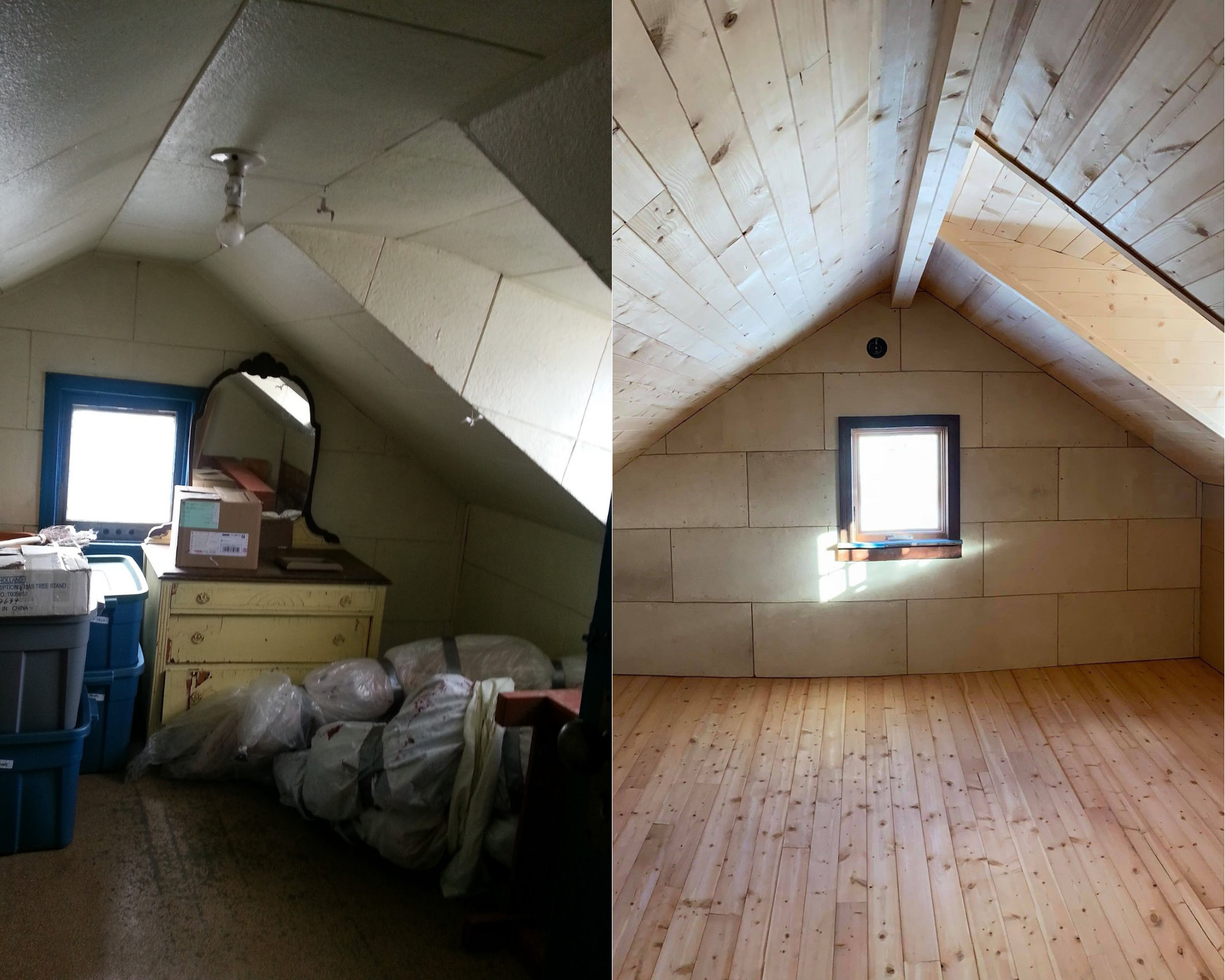
Before and After Photos of the upstairs reno in 2021. Photo credit: Mary Forbes.
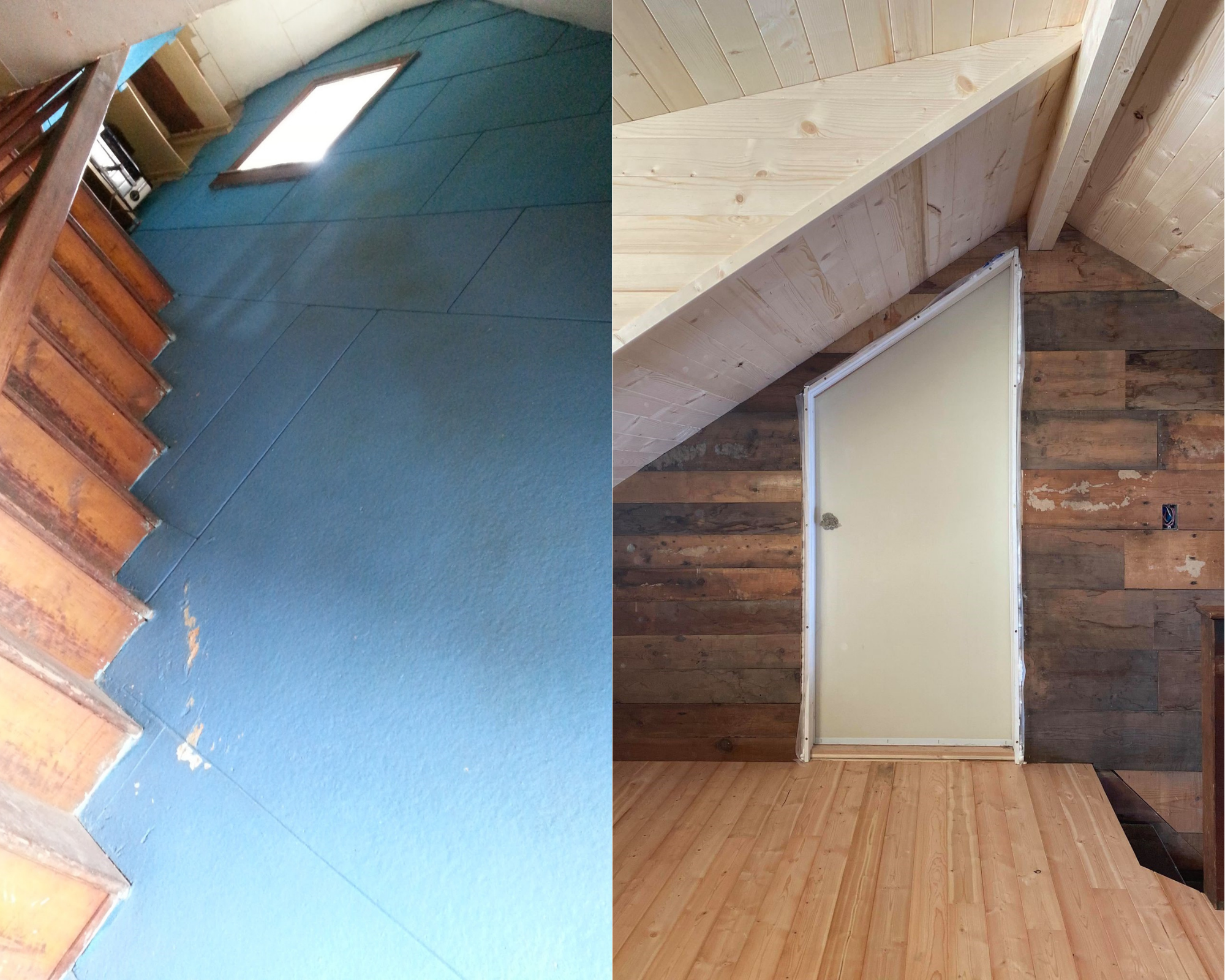
Before and After Photos of the upstairs reno in 2021. Photo credit: Mary Forbes.
The momentum of the upstairs renovation project continued into 2021, when the society received a sizeable grant to replace the failing, damaged foundation. To quote Executive Director Mary Forbes when the grant was confirmed, “The old lady is getting new underpants!” The house was lifted off its foundation with a crane, the old foundation excavated and replaced, and the house moved back. This project has required extensive planning and management, with our team considering the environmental impact and sustainability of every aspect. Some decisions were easy to make, but required a significant amount of work in the preparation phase. One such consideration was the original siding of the house, milled locally and no longer readily available. Oliver Berger, our Compost Expert, who also boasts carpentry skills, carefully removed the siding so that it sustained minimal damage and can be replaced at the end of the project. With similar foresight and care, Oliver has been able to salvage a significant volume of materials.
While there is an increasing number of sustainable building materials and products in the market today, they are not always affordable, or even suitable for the area. For example, when it comes to heating and cooling options, heat pumps, an energy-efficient alternative to a furnace, are becoming a popular choice; but they aren’t optimal for sub-zero temperatures (-10°C to -25°C), requiring a backup heat source for colder weather. In the Cariboo, it is not unusual to have -30°C temperatures for up to a week at a time, so if we chose a heat pump, we would need to install a furnace as well. We also discussed installing an electric furnace and solar panels, but the cost wasn’t included in the budget during project planning. At the end of the day, we decided to go with a budget-friendly, high-efficiency gas furnace for now—with plans to upgrade to a more sustainable option in the future. Working with contractors who understand and respect our values has helped us navigate such tough decisions while meeting our goals. Father-and-son team Doug and Jamie Regier regularly consult with us regarding decisions, and provide options with heritage and sustainability values in mind. Not only do they have an eye on safety standards and building codes, they also advocate for sustainable choices when working with subcontractors.


Moving the house off its foundation. The old house held up extremely well and the team of contractors took great care in preparing the house to be moved to its temporary pad during the project. Photo Credit: Oliver Berger.
The basement project is now at the finishing and design stage. This is when our team shines, and resources like social media marketplaces, share sheds and the hoarding habits of team members come in handy. We’ve rescued appliances, furniture, light fixtures and tiles to create a beautiful and welcoming space, with little need for newly manufactured items. We’ve even found the original fir flooring from the Wells Community Hall, milled locally back in 1938, which will replace drywall on some of the walls. The old basement space contained a root cellar, built by the Cariboo Chilcotin Conservation Society (CCCS) and used every fall and winter to store veggies from the CCCS gleaning program. The new space has a dedicated space for cold storage, the finishing of which has been generously funded by the Williams Lake Social Planning Council, for food security use by various community organizations, including CCCS, the Williams Lake Food Policy Council and the Potato House.
The amazing staff and volunteers of the Potato House Sustainable Community Society have been hard at work. Our goal? To rebuild a space in downtown Williams Lake that will stand as an exemplar of sustainability, community and heritage in a modern world. This team truly believes that it is possible to enjoy everything that this life has to offer, while being mindful of the effect we have on the environment around us.
The Potato House Sustainable Community Society gratefully acknowledges the financial support of the Province of British Columbia through the Ministry of Forests, Lands, Natural Resource Operations and Rural Development.



